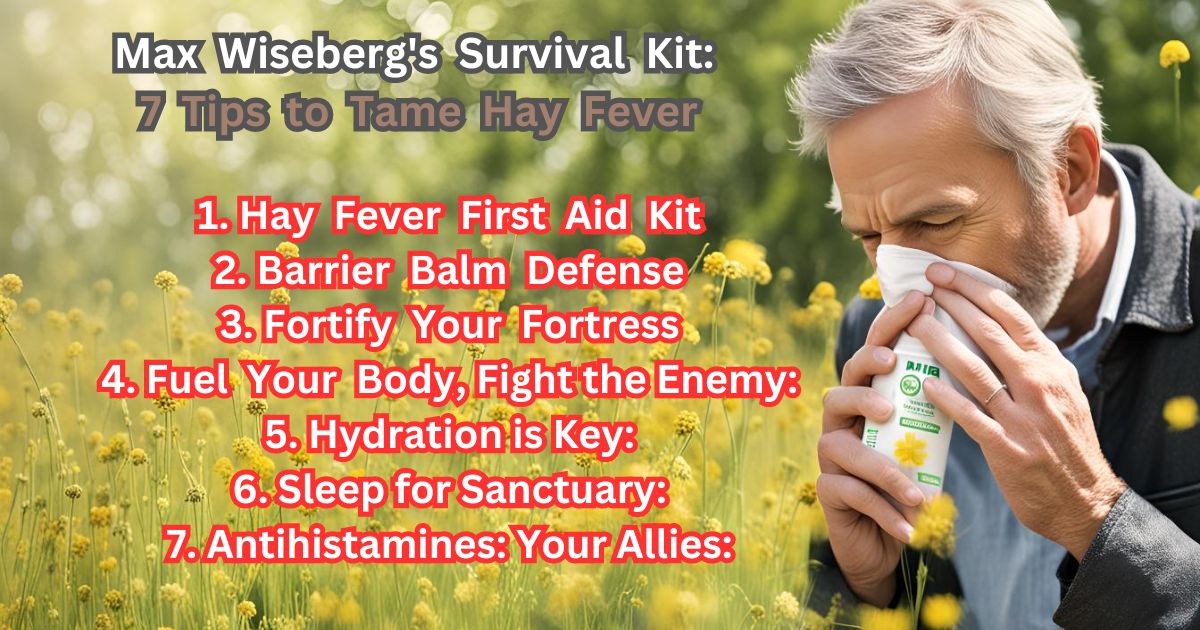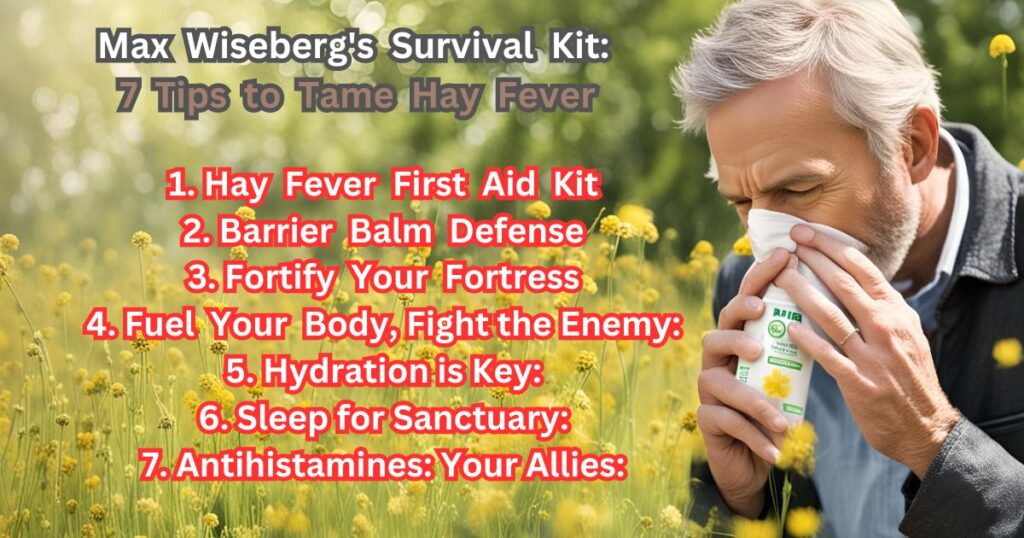As summer approaches in Wales, so too does the dreaded peak season for grass pollen. This invisible enemy can wreak havoc on those suffering from hay fever, bringing on a barrage of itchy eyes, runny noses, and constant sneezing. But fear not, fellow sufferers! Here, we’ll equip you with the knowledge and tools to navigate this polleniferous period with ease.
Understanding Hay Fever’s Sting
Hay fever, also known as allergic rhinitis, occurs when your immune system identifies harmless pollen as a threat. This triggers an inflammatory response, leading to the frustrating symptoms we all know too well. Grass pollen, in particular, is the culprit for most hay fever sufferers, with its peak season hitting Wales in June and July.
Hay fever season is coming to Wales! It means there will be more pollen in the air, which can make your allergies worse. Here are some tips to help you feel better during hay fever season:
- Make a hay fever first aid kit.
- Use special balms that can block allergens from getting into your nose.
- Keep your doors and windows closed at home to avoid pollen.
- Eat healthy foods that contain quercetin, a substance that can help with allergies.
- Drink plenty of water.
- Get a good night’s sleep.
- If you still have symptoms, you can take allergy medicine.
- By following these tips, you can enjoy the season even if you have hay fever.
Max Wiseberg’s Survival Kit: 7 Tips to Tame Hay Fever
Max Wiseberg, a leading hay fever expert, offers these valuable tips to help you manage hay fever during peak grass pollen season:
1. Hay Fever First Aid Kit: Be prepared for flare-ups with a well-stocked kit. This should include an organic allergen barrier balm like HayMax (developed by Wiseberg himself), an antihistamine for symptom relief, a steroid nasal spray for more severe cases, and a natural product like quercetin, a natural antihistamine found in certain foods.
2. Barrier Balm Defense: This innovative balm acts as a shield, physically preventing pollen from entering your nose and eyes. Apply it liberally around your nostrils and under your eyes before venturing outdoors.
3. Fortify Your Fortress: Minimize pollen infiltration at home by keeping doors and windows closed, especially during high pollen counts. Consider investing in air purifiers for an extra layer of defense.
4. Fuel Your Body, Fight the Enemy: A healthy diet plays a crucial role in managing hay fever. Fill your plate with fruits and vegetables rich in antioxidants and vitamins to support your immune system. Foods like capers, red onions, watercress, and kale are particularly beneficial due to their quercetin content. Remember, a well-nourished body is a more resilient one!
5. Hydration is key. Staying well-hydrated helps thin mucus and flush out pollen from your system. Make water your go-to beverage and aim for eight glasses a day.
6. Sleep for Sanctuary: Hay fever can disrupt a good night’s sleep, leaving you feeling even more drained. Establish a regular sleep routine and create a relaxing bedtime environment. Additionally, showering before bed can help remove pollen from your hair and body, promoting better sleep.
7. Antihistamines: Your Allies: Over-the-counter antihistamine tablets or nasal sprays can provide much-needed relief from hay fever symptoms like sneezing, itching, and congestion. Consult your pharmacist or doctor to find the best option for you.
Beyond Survival: Resources for a Hay Fever-Free Future
For those seeking even more in-depth information and personalized advice, consider visiting Max Wiseberg’s website at haymax.
Remember, with the right approach and these handy tips, you can conquer hay fever season and enjoy the beauty of summer in Wales without suffering the consequences. Take control, breathe easy, and embrace the sunshine!

